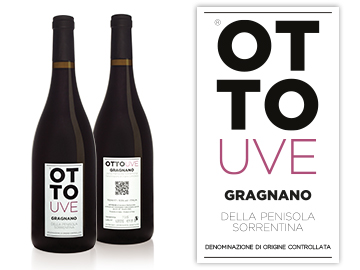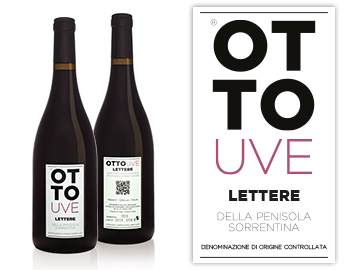OUR WINES
We produce only doc wines from land that has given us origins an future
OttoUve Gragnano
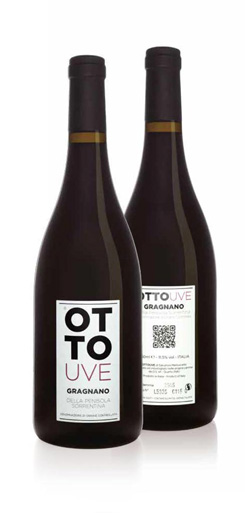
The Gragnano della Penisola Sorrentina doc is the wine of the gastronomic tradition of city of Naples, it is considered the best matching with the Verace pizza Napoletana.
Mentioned in stories, poems and comedies, the most famous of which is undoubtedly ‘Miseria e Nobiltà’ by Eduardo Scarpetta in which Totò - in the guise of a modern sommellier - extols its characteristics and ends with the famous phrase ‘if it is not Gragnano, give it up’. It is a "vivace"red wine - with hints of violet, strawberry, rose and raspberry - to be served cold. Traditionally the Gragnano was drunk after St Martin's Day - when all must become wine.
The name OTTOUVE is a tribute to the many indigenous grape varieties that historically contributed and in part still contribute to the production of Gragnano: piedirosso, aglianico and sciascinoso for at least 60%, suppezza, castagnara and olivella for the remaining 40%.
OttoUve Lettere
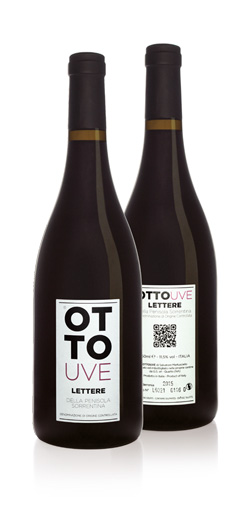
Lettere della Penisola Sorrentina doc is a “vivace” red wine with a long tradition whose grapes are cultivated in the municipality of Lettere in very small plots. It is produced from several indigenous vines, most of which are grown only in this area. It shares the same DOC and the same vines with Gragnano, but the vineyards are located higher up and have a different exposure from those in Gragnano, and these characteristics make these wines different and in some ways unique.
An ancient competition pits the two wines and the farmers of the two towns against each other. The farmers of Lettere, whose roads were more impervious in ancient times, have always claimed that Lettere wine was for the most refined palates, in fact it was for the most tireless traders who travelled the steep mountain paths without fear.
Lettere has to be served cold and matches well with true Neapolitan pizza and traditional dishes.
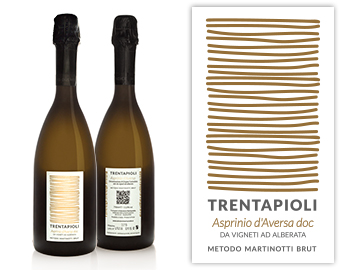
TRENTAPIOLI
Asprinio d'Aversa DOC
Trentapioli - Asprinio Spumante
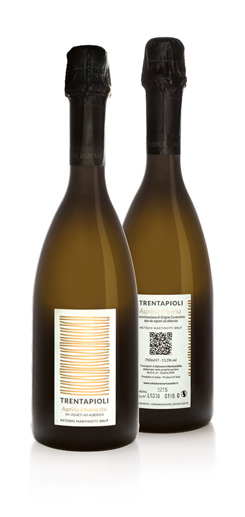
TRENTAPIOLI is the name our Martinotti Method sparkling wine made with Asprinio d'Aversa doc grown with VIGNETI AD ALBERATA system.
The name TRENTAPIOLI is a tribute to the ladder used to climb the Alberata, it is 15 metres high and consists of about 30 rungs. This system dates back to the Etruscans, the last testimony is found only in Aversa.
TRENTAPIOLI is matured on its own yeasts in autoclaves for at least 180 days. Due to the unique characteristics of the vine, TRENTAPIOLI can also be tasted several years later.
Harvesting is by hand in 18 kg boxes and it is made using characteristic ladders up 15 metres high. Harvesting begins in mid-September and lasts for about three days. The farmers do not use scissors but pluck the grapes by hand and place them in the “fescina”, the pointed shaped basket that is fixed in the ground once lowered down.
Impressive in summer during the vegetative phase, breathtaking in winter after the pruning, the Alberata is a monument to the countryside life.
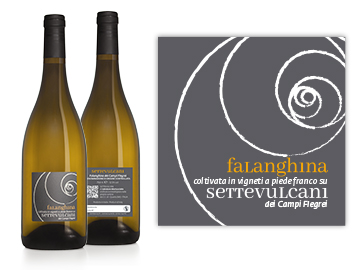
Settevulcani
Falanghina dei Campi Flegrei DOC
Settevulcani - Falanghina dei Campi Flegrei
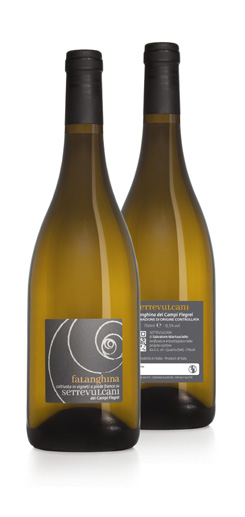
Campi Flegrei are one of the world's 3 supervolcanoes. This term is not correct from a scientific point of view, but it gives an immediate sense of the vastness and danger of this caldera that is in continuous activity.
The landscape is very distinctive, hilly, lacustrine, marine, with breathtaking coastlines alternating with semi-submerged volcanic edifices. The fertile soils are volcanic and sandy and do not allow phylloxera to survive, the vines are grown today as they were 2,000 years ago on original roots. This doc was born thanks to the Martusciello family in 1994. With its vineyards facing the sea, our Settevulcani Falanghina dei Campi Flegrei is characterised by its freshness and minerality.
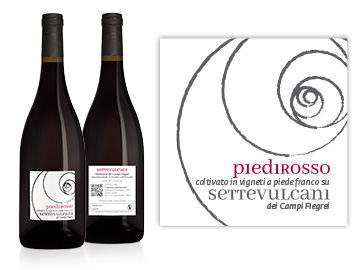
Settevulcani
Piedirosso dei Campi Flegrei DOC
Settevulcani - Piedirosso dei Campi Flegrei
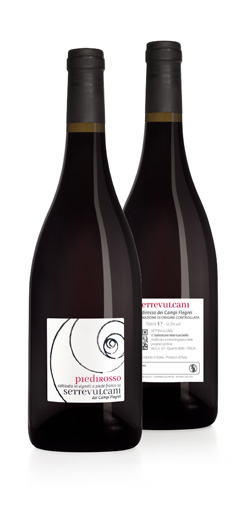
The Piedirosso finds one of its best expressions in the Campi Flegrei where, like the Falanghina, it is grown on original rootstock.
It is one of the oldest varieties in Campania mentioned by Pliny the Elder in his Naturalis Historia. The name derives from the color and shape of the stem which during the harvest becomes red in color and reminds the 'feet' of the dove.
Piedirosso dei Campi Flegrei is characterized by its aromas of small red fruits including blackberry, morello cherry and cherry.
